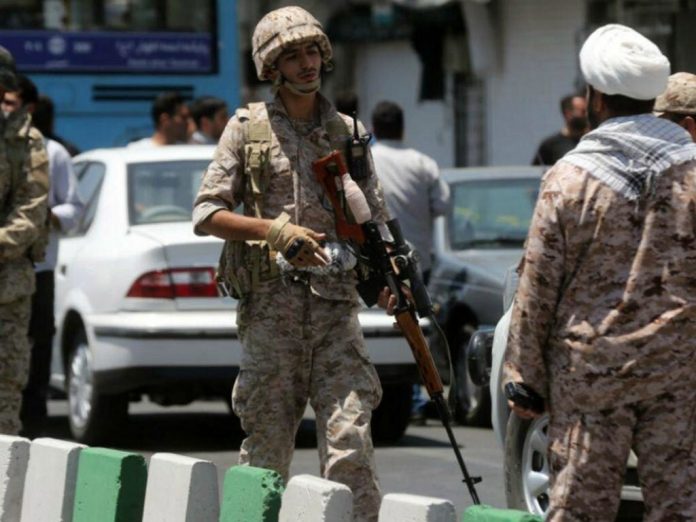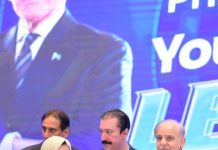From Tehmina Mustapha
TEHRAN: Iranian authorities have arrested several people over the assassination of a Revolutionary Guards colonel in May that Tehran has blamed on Israel and its Western allies, judiciary spokesman Masoud Setayeshi said on Tuesday.
The Guards, Iran elite security force, said the shooting of Hassan Sayad Khodai in the capital Tehran by two people on a motorcycle was the work of “terrorist groups affiliated with global oppression (West) and Zionism (Israel)”.
“Several people have been arrested in the case of the assassination of martyr Khodai. The necessary legal orders have been issued for them and the case is under investigation,” Setayeshi told a news conference, according to state media.
The Israeli Prime Minister s office, which oversees intelligence agency Mossad, declined to comment on the events in the Iranian capital.
Israeli media said Khodai headed a unit of the Quds Force – the Revolutionary Guards overseas arm – that planned attacks on Israelis abroad. Iran said Khodai was a “defender of the shrines”, referring to military personnel or advisers who the Islamic Republic says fight on its behalf to protect Shi ite Muslim sites in Iraq or Syria against Sunni militant groups such as Islamic State.
Iranian forces have played a key role in support of Syrian President Bashar al-Assad, Tehran s ally, against Islamic State and other militant and rebel groups in Syria s civil war.
Khodai’s killing came at a time of uncertainty over the revival of Iran s 2015 nuclear deal with world powers after months of stalled talks. At least six Iranian scientists and academics have been killed or attacked since 2010, several of them by assailants riding motorcycles, in strikes believed to have targeted Iran’s uranium enrichment programme, which the West says is meant to develop a nuclear weapons capability.
Iran says its nuclear energy programme has solely peaceful purposes, and has denounced the killings as acts of terrorism carried out by Western intelligence agencies and Mossad. Israel has declined comment on such accusations.
Monday, Iranian Foreign Ministry Spokesman Nassar Kanaani said, the United States, in order to rejoin the Iranian nuclear deal, must prove it reliable and show that it abides by the international norms.
“The country, which unilaterally withdrew from the agreement signed in 2015, has hindered the achievement of an agreement based on joint interests … has imposed illegal, unilateral and irrational sanctions (on Iran), and has no right to be a claimant and take a creditor’s pose,” Nassar Kanaani told reporters during his weekly press conference. “The U.S. government needs to take a constructive approach to reaching an agreement,” he noted.
In its recent response to the EU’s proposal on restoring the 2015 nuclear deal, formally known as the Joint Comprehensive Plan of Action (JCPOA), Iran has not raised any new issues or “any serious demands” that would hinder the achievement of a possible agreement, Kanaani said, calling the Western parties’ pressures following Iran’s response as “psychological warfare.”
The recent statement of the European troika of France, Germany and Britain about Iran’s response to an EU nuclear proposal was “wrong” and “untimely,” Kanaani said.
On Saturday, France, Germany and Britain said in a joint statement that Iran “has chosen not to seize this critical diplomatic opportunity” given by a recent EU-submitted “final set of texts” to rescue the JCPOA, voicing their “serious doubts as to Iran’s intentions and commitment to a successful outcome on the JCPOA.




